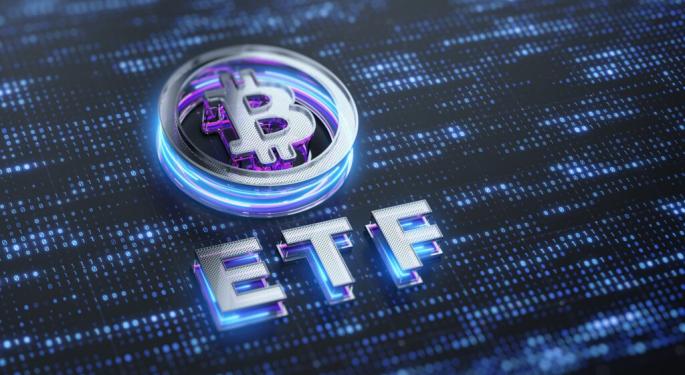$1.5 Billion In One Day: Why Bitcoin And Ethereum ETFs Are Running Wild
U.S. spot Bitcoin (CRYPTO: BTC) ETFs recorded a daily net inflow of $799.4 million on July 16, extending a ten-day streak of consistent institutional inflows and pushing cumulative inflows past $53.8 billion, according to data from SoSoValue.
The inflows come amid surging prices and a broader industry push for regulatory clarity during the ongoing "Crypto Week" in Washington.
The ten-day run of inflows into spot Bitcoin ETFs has now brought cumulative inflows to over $53.8 billion, a sign of mounting institutional interest as crypto assets rebound sharply in 2025.
Data shows BlackRock's iShares Bitcoin Trust (NASDAQ:IBIT) leading with a daily inflow of $763.8 million, pushing its net assets to $86.7 billion.
Ethereum (CRYPTO: ETH) also witnessed record-breaking activity, with U.S. spot ETH ETFs drawing in $726.7 million on the same day, its highest single-day net inflow to date, lifting total ETH ETF net assets to $16.4 billion.
Also Read: Donald Trump To Fire Jerome Powell? Polymarket Traders Say ‘No, But…’
What Experts Are Saying: In a note sent to Benzinga, Dom Harz, co-founder of hybrid Layer-2 network BOB, attributed the surge to "the convergence of increased institutional inflows, growing confidence in digital assets as foundational infrastructure, and importantly, a call for regulatory clarity."
He added that "Crypto Week is a historic moment for both Bitcoin and crypto," emphasizing that Bitcoin DeFi is becoming a viable gateway for institutions to not only hold BTC but also deploy it in decentralized applications.
This period of momentum coincides with the legislative activity surrounding the proposed GENIUS Act, a digital asset bill aimed at establishing a clearer U.S. regulatory framework.
However, some voices from within the industry believe the U.S. is playing catch-up.
"The GENIUS Act signals overdue progress, but it can't pretend to lead when it's clearly playing catch-up," said Manthan Davé, co-founder of Ripple (CRYPTO: XRP)-backed custodian Palisade.
Davé highlighted that Europe's MiCA legislation has already laid a blueprint by proving "regulation doesn't have to strangle innovation—it can stabilize it."
Davé also raised concerns about siloed regulation: "If the Act merely establishes a U.S.-only stablecoin ecosystem, it risks stifling on-chain finance instead of enabling it."
For the U.S. to remain competitive, he argues, regulation must accommodate composability and interoperability with DeFi systems, particularly in the emerging tokenized treasury and RWA segments.
Despite concerns, the current ETF data indicates strong momentum.
Fidelity's (CBOE: FBTC) and Grayscale's (NYSE:GBTC) followed BlackRock (NASDAQ:BLK) in flows, though GBTC reported no net inflow, maintaining $21.8 billion in net assets.
Meanwhile, Ethereum ETFs by BlackRock (NASDAQ:ETHA) and Grayscale (NYSE:ETHE) led ETH-based activity, with 11.19% and 11.23% daily gains in price, respectively.
Read Next:
Image: Shutterstock
© 2025 Benzinga.com. Benzinga does not provide investment advice. All rights reserved.
Posted-In: Cryptocurrency News Top Stories



